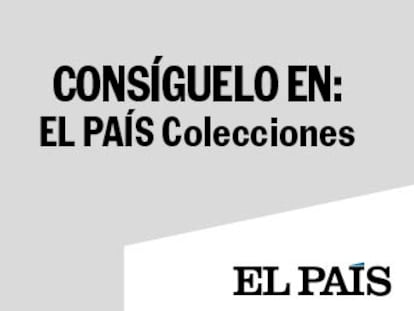Cable sobre desacuerdos en la política de España para Venezuela
En 2005, un alto funcionario asegura que la mayoría del Ministerio de Exteriores está perpleja con la política de Zapatero para Venezuela
| ID: | 26877 |
| Date: | 2005-02-11 16:49:00 |
| Origin: | 05MADRID569 |
| Source: | Embassy Madrid |
| Classification: | CONFIDENTIAL |
| Dunno: | 05STATE25063 |
| Destination: | This record is a partial extract of the original cable. The full text of the original cable is not available. |
C O N F I D E N T I A L SECTION 01 OF 02 MADRID 000569 SIPDIS FOR EUR/WE, WHA/AND, EUR/ERA, S/CT E.O. 12958: DECL: 02/11/2015 TAGS: PREL, PGOV, PTER, SP, CO, VE SUBJECT: ZAPATERO VENEZUELA POLICY PERPLEXES SPANISH MFA OFFICIALS REF: STATE 25063 Classified By: Political Counselor Kathleen M. Fitzpatrick, reasons 1.4(b) and (d). 1. (C) Summary: The Spanish Ministry of Foreign Affairs' chief official for Andean countries informed poloff February 9 that a majority of officials at the MFA are as perplexed as the U.S. is at President Jose Luis Rodriquez Zapatero's policy of building closer relations with Venezuela's Hugo Chavez. Juan Carlos Sanchez (please protect) explained Zapatero's Venezuela policy is being run from Moncloa and the MFA is left to try to influence the policy as much as possible. Most MFA officials, according to Sanchez, see no benefits and only downsides for Spain in closer relations with Venezuela. They understand Zapatero's moves do not work to promote democracy or stability in the region and will only serve to further strain relations with the U.S., Colombia and other countries in the region. End summary. 2. (C) Poloff met February 9 with Sanchez, the MFA's Deputy Director General for the Andean Community (DAS-equivalent) to discuss Spain's policy toward Venezuela and Colombia. (Sanchez replaced Ernesto de Zulueta as the Andean DDG in December 2004). Poloff began the meeting telling Sanchez that in general the U.S. was extremely perplexed at Spain's developing relationship with Venezuela and Hugo Chavez, and believed the Spanish government was on the wrong side of the equation in terms of promoting democracy in the region and avoiding conflicts between Venezuela and Colombia. 3. (C) In a surprisingly frank reply, Sanchez (please protect) said he and "the great majority" of his colleagues in the Foreign Ministry were "equally perplexed" at Zapatero's moves to build closer relations with Chavez. He specifically noted (again, please protect) that more senior officials involved with Latin American affairs at the MFA share this view. Sanchez, who has served in Caracas, explained that neither he nor many others in the MFA saw any benefit accruing to Spain from Zapatero's policy, rather quite the opposite: Zapatero's cozying up to Chavez will only needlessly anger the United States and Colombia. "We don't understand the policy or the reason for it," remarked Sanchez. 4. (C) On Zapatero's canceling of a planned stop in Caracas during his recent visit to South America, Sanchez said the MFA strongly urged Zapatero not to make the stop, believing it would be a serious mistake, but in the end it was Colombian President Alvaro Uribe's direct intervention with Zapatero (somewhat heated, according to Sanchez) that ultimately led Zapatero to cancel the stop. Sanchez said he and his MFA colleagues were at a loss to explain why Zapatero then "secretly" sent Minister of Defense Bono to Caracas. If the purpose of the visit was to lobby Chavez to purchase military ships from Spain's ailing Izar shipyards, the prevailing view at the MFA is that placating, probably only temporarily, Izar's agitated ship workers was not worth damaging Spain's relations with the U.S., Colombia and others. 5. (C) Moreover, Sanchez emphasized, selling any kind of armaments to Venezuela at this time "makes no sense at all," particularly in light of the Zapatero government's decision in 2004 to cancel the sale of "a few second or third hand tanks" to Colombia, purportedly because Madrid was concerned the sale could upset the military balance between Venezuela and Colombia. "If Bono had justified canceling the sale based on the idea that tanks are not well suited to fighting an insurgency, that would be one thing," said Sanchez, "but having canceled the sale supposedly to avoid tipping the military balance in the region, we at the MFA understand how incongruous discussions with Venezuela about purchasing armaments from Spain now look." 6. (C) Sanchez said that Venezuela policy is being run out of Moncloa (the presidency) and that the MFA is left trying to influence the policy as much as possible. "The MFA wants relations with the U.S. repaired, not further damaged by a policy of building closer relations to Hugo Chavez, which produces no tangible benefits for Spain," said Sanchez. The MFA understands the U.S. also strongly disagrees with Spain's Cuba policy, but the MFA feels it can articulate a reasonable basis for the Zapatero government's position on Cuba. "There is no reasonable basis for our Venezuela policy," said Sanchez. The MFA understands Spain should be on the right side of democracy and regional security, and that Venezuela is going in the wrong direction. The MFA is doing its best to persuade Moncloa of this. 7. (C) Poloff said the U.S. strongly urges Zapatero not to visit Caracas in March as we understand he is tentatively planning to do. Sanchez replied that the MFA understands the U.S. position and is seeking to postpone the visit. At a minimum, the MFA wants to see Zapatero visit Bogota on the same trip if Zapatero does go to Caracas in March. 8. (C) Poloff's conversation with Sanchez took place before we received reftel concerning Venezuelan attempts to purchase certain armaments. We will follow up with both the MFA and Moncloa on the arms question, and more generally on further developments in the Zapatero government's evolving policy toward Venezuela. MANZANARES |
Traducción automática. Puede que el texto traducido no sea fiel al original
Tu suscripción se está usando en otro dispositivo
¿Quieres añadir otro usuario a tu suscripción?
Si continúas leyendo en este dispositivo, no se podrá leer en el otro.
FlechaTu suscripción se está usando en otro dispositivo y solo puedes acceder a EL PAÍS desde un dispositivo a la vez.
Si quieres compartir tu cuenta, cambia tu suscripción a la modalidad Premium, así podrás añadir otro usuario. Cada uno accederá con su propia cuenta de email, lo que os permitirá personalizar vuestra experiencia en EL PAÍS.
¿Tienes una suscripción de empresa? Accede aquí para contratar más cuentas.
En el caso de no saber quién está usando tu cuenta, te recomendamos cambiar tu contraseña aquí.
Si decides continuar compartiendo tu cuenta, este mensaje se mostrará en tu dispositivo y en el de la otra persona que está usando tu cuenta de forma indefinida, afectando a tu experiencia de lectura. Puedes consultar aquí los términos y condiciones de la suscripción digital.



















